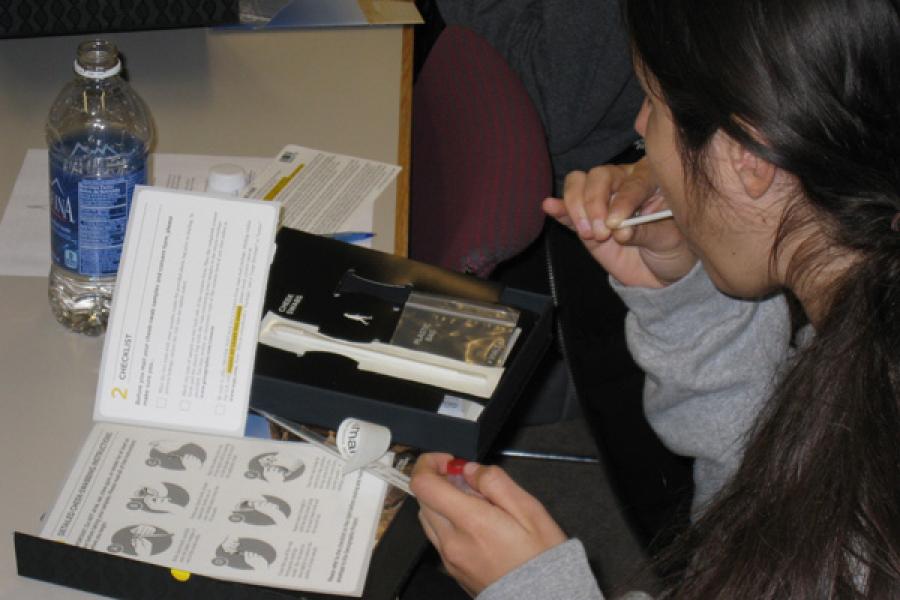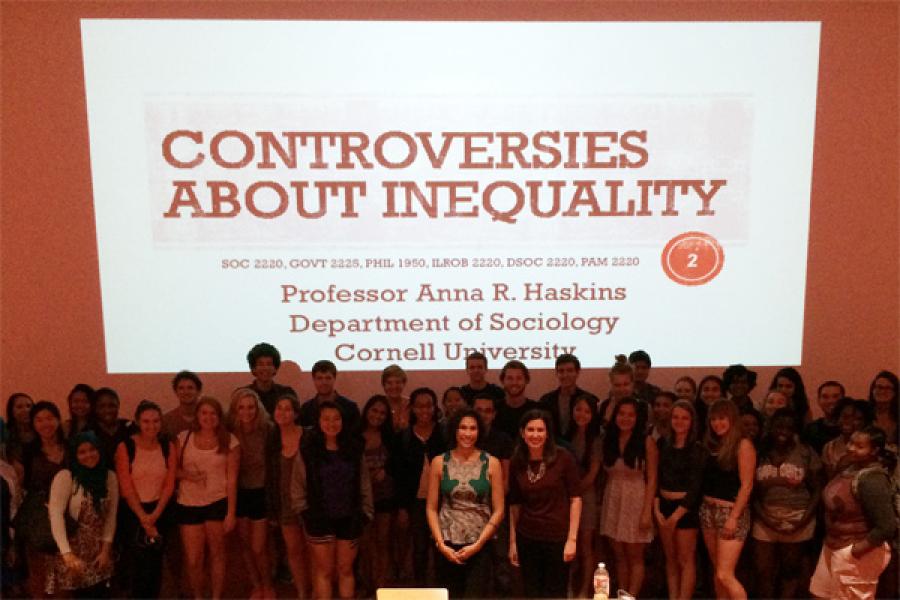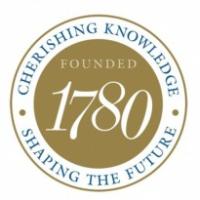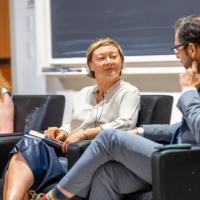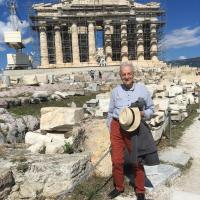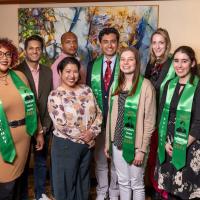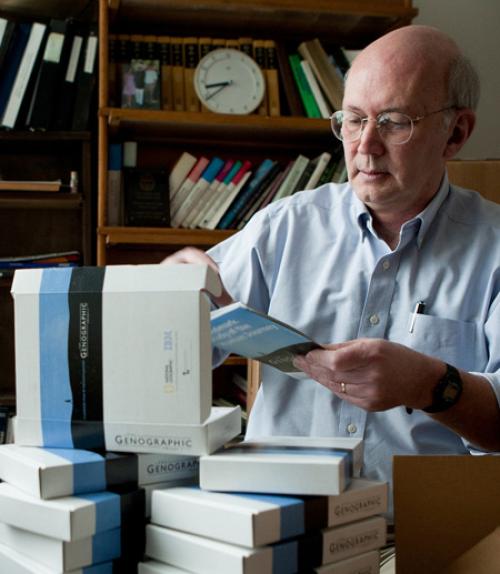If you’ve ever wondered about love (and who hasn’t?), there’s a new university course for you this year. And if you ponder the issue of food justice and how it relates to our tiny town of Ithaca, there’s one for that too.
Those topics are two of the new ones covered this year through the University Courses Initiative, which was begun in 2012 and will offer 18 courses this year.
“University Courses engage with questions and issues that do not fit easily within the boundaries of a single academic discipline,” said Elliot Shapiro, the Knight Foundation director for Cornell’s Writing in the Majors program and director of instruction for the University Courses Initiative. “These courses delve deeply into topics of interest to students from a broad range of majors, and create opportunities for this diverse group of students to learn from each other. In many cases, they also provide faculty with a rare opportunity to teach collaboratively. “
“A Global History of Love,” offered this semester and taught by Tamara Loos and Durba Ghosh, both associate professors of history, will include various readings about love, gender and sexuality. It will also include trips to the Johnson Museum to explore art that expresses love and desire throughout history and explorations of the Kinsey Report questionnaire in Cornell’s Human Sexuality Collection, Loos said.
“We have both taught about gender and sexuality in Asian history before, but this course is ‘global’ in its coverage so it will also consider ideas about love, sex, sexuality, and gender in Africa, the U.S., Europe and Asia,” Loos said.
In Noliwe Rooks’ course, “Race and Social Entrepreneurship: Food Justice and Urban Reform,” students will partner with an Ithaca senior center, McGraw House, and focus their research, reading and discussions on food policy, politics, access and sustainability in Ithaca. Students will work with area community groups, as well as the residents, to propose workable solutions, said Rooks, the interim chair and an associate professor in Africana studies and a core faculty member in feminist, gender & sexuality studies.
“It is important for students to think about the ways that race, class, age and access impact something as basic as food and the ability to eat,” Rooks said. “Far too frequently the overall food, or healthy eating movement can tend to overlooks the cultural and societal issues impacting food quality and access as well as the health and economic realities surrounding how Americans who are older, on a fixed income, poor, Black, and/or Latino eat, shop, and cook for themselves and their children. However, all those issues are central to the Food Justice movement.”
Along with the new classes, many other popular university courses will be offered again this year.
One is Prof. Charles Aquadro’s class, “Personal Genomics and Medicine,” where students explore the scientific, ethical, legal and social issues related to DNA testing for ancestry inference and in medicine, which is becoming readily available today.
“As a population geneticist, I’m interested in getting people from inside and outside of the sciences engaged in a dialogue about the power, promise and limitations of genetic testing,” said Aquadro, professor of molecular biology and genetics and director of the Cornell Center for Comparative and Population Genomics. “This course (offered next spring) is not just for those interested in science; it is a topic we all need to have a basic understanding of to ensure we are prepared for what is rapidly becoming part of all of our futures.”
Students in the class have the option to submit a saliva sample for genetic ancestry testing, Aquadro said.
“I’ve had testing done by several companies and have my medical risk information, which I use in lectures,” Aquadro said. “I found I have a risk for glaucoma, so I am vigilant about eye exams.”
But these tests have limits and emotional consequences when the results arrive, so some people prefer not to be tested.
“I help students understand that for most genetic variants it’s not a ‘yes’ or ‘no’ prediction for disease,” Aquadro said. “We’re at a real infant stage (in genetic testing). There’s a lot of promise but a lot of biology to be done.”
Another popular university course offered again this year is “Controversies about Inequality,” taught by Anna Haskins, assistant professor of sociology.
The course exposes students to current topics in social inequality in a unique way by bringing outside researchers to campus and having students engage with them and their work.
“Most students in the class end up shocked in some way about the level of inequality that exists today,” Haskins said. “Some students are super aware of racial disparities when it comes to policing, for example, but unaware of the extent of discrimination in housing or the problems of inequality globally.”
This fall’s speakers include R. L’Heureux Lewis-McCoy, associate professor of sociology and Black studies at the City College of New York and author of “Inequality in the Promised Land,” Kathryn Edin, the Bloomberg Distinguished Professor in the Department of Sociology at Johns Hopkins University and H. Luke Shaefer, associate professor of social work and public policy at the University of Michigan, authors of “$2 a Day” and Matthew Desmond, the John L. Loeb Associate Professor of the Social Sciences at Harvard University and author of “Evicted.” Their presentations are free and open to the public.
Haskins ends the course with discussions about our moral obligations in a world of global inequality and injustice
“I’m not saying that there’s a particular amount of inequality that we should not tolerate, but I want students to ask themselves what level bothers them and what they think they should do about it,” she said. “This class presents the picture and gives students the information and knowledge they need, so that if they want to make a change, they have some tools.”
